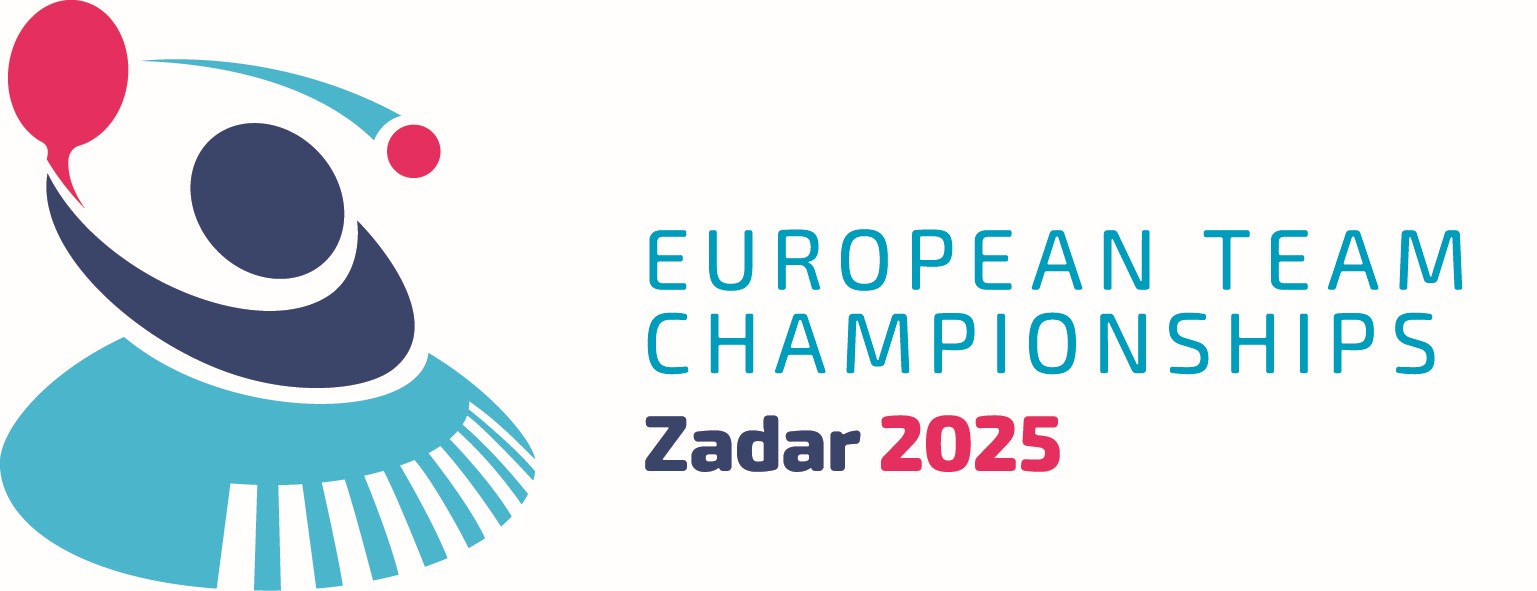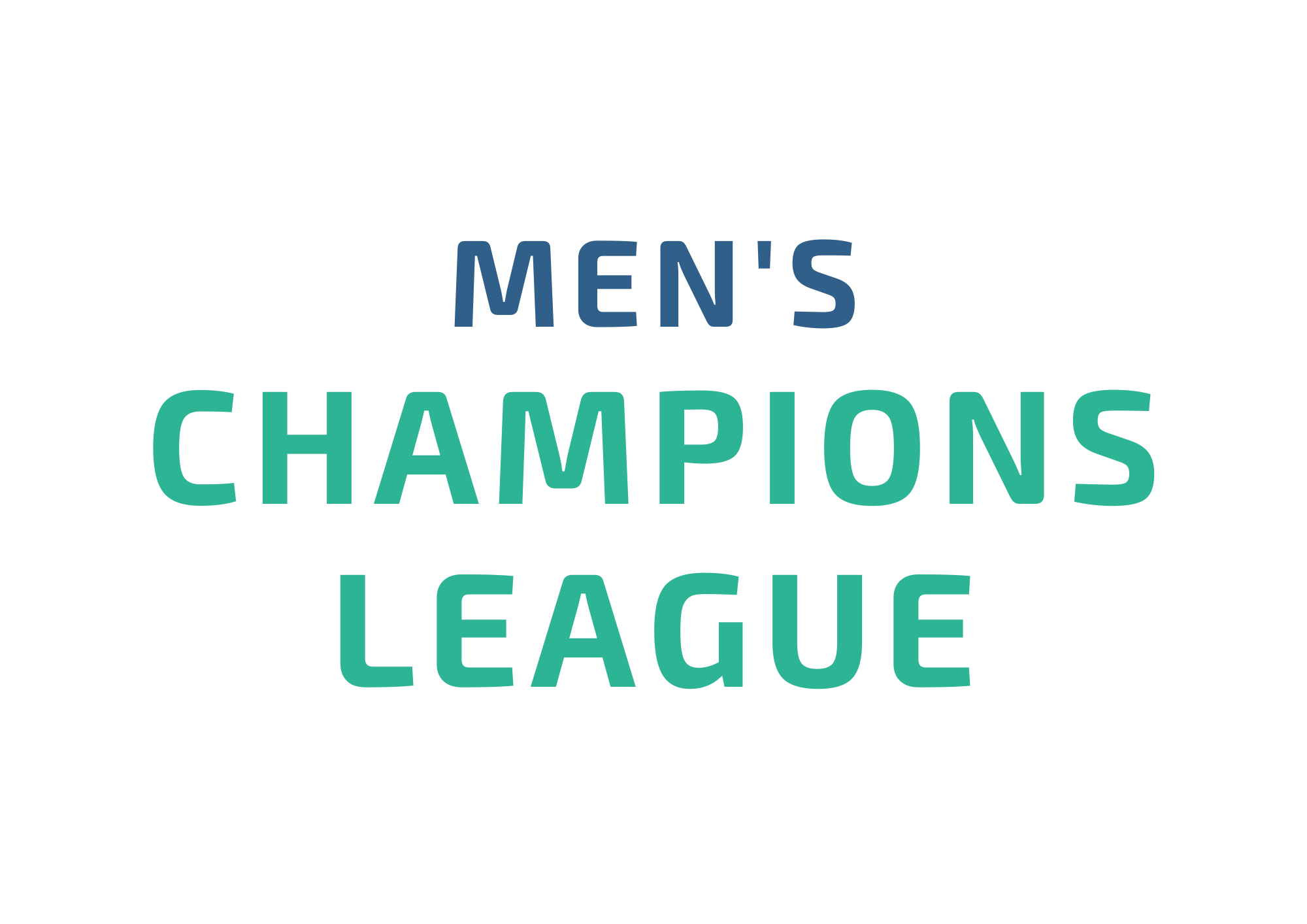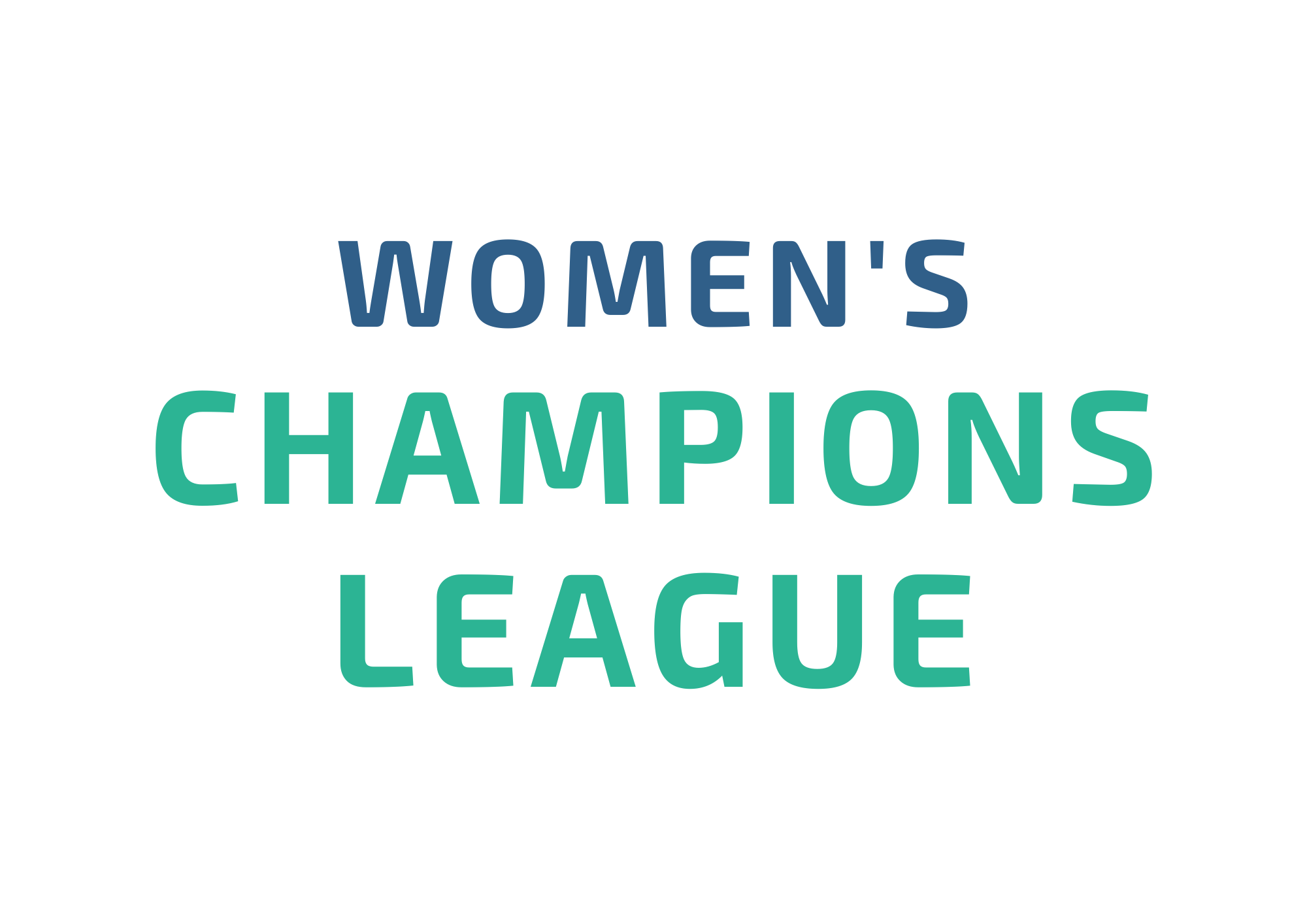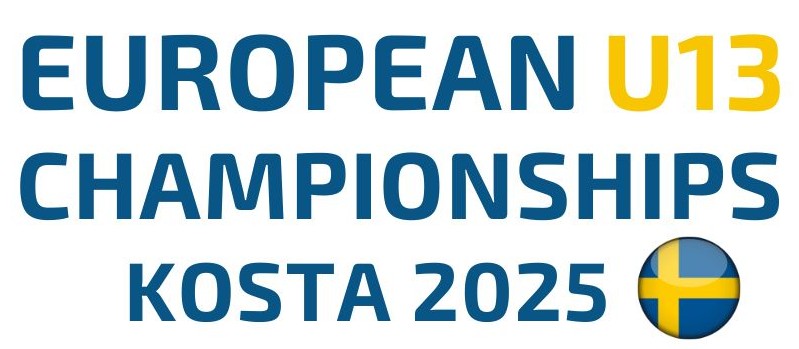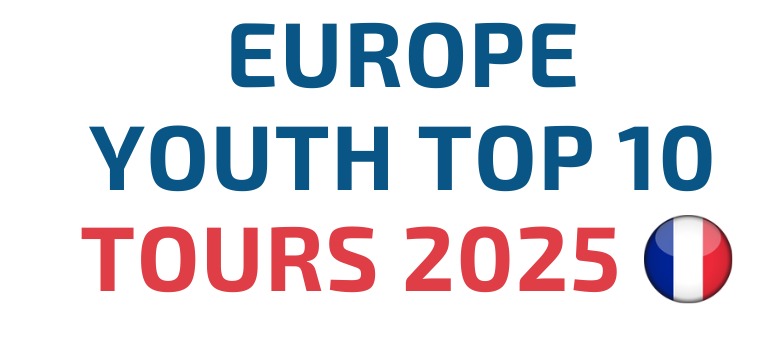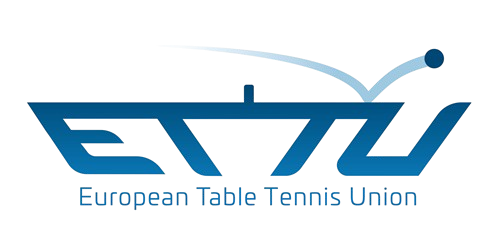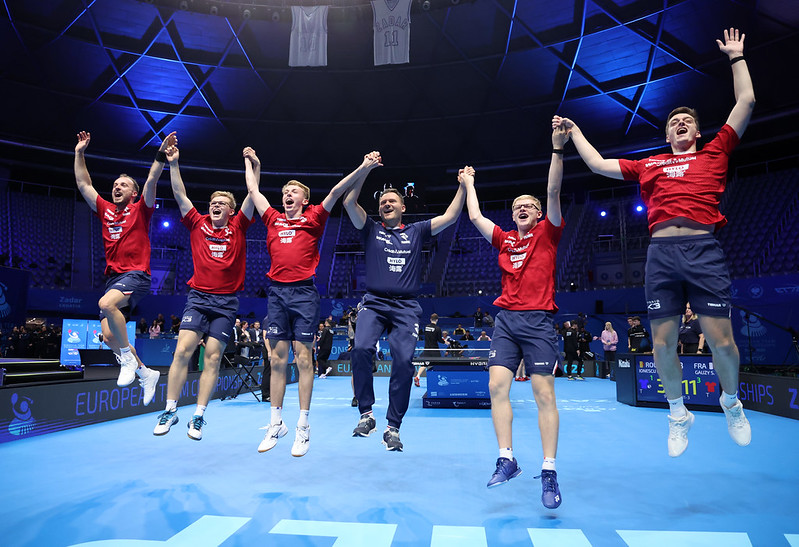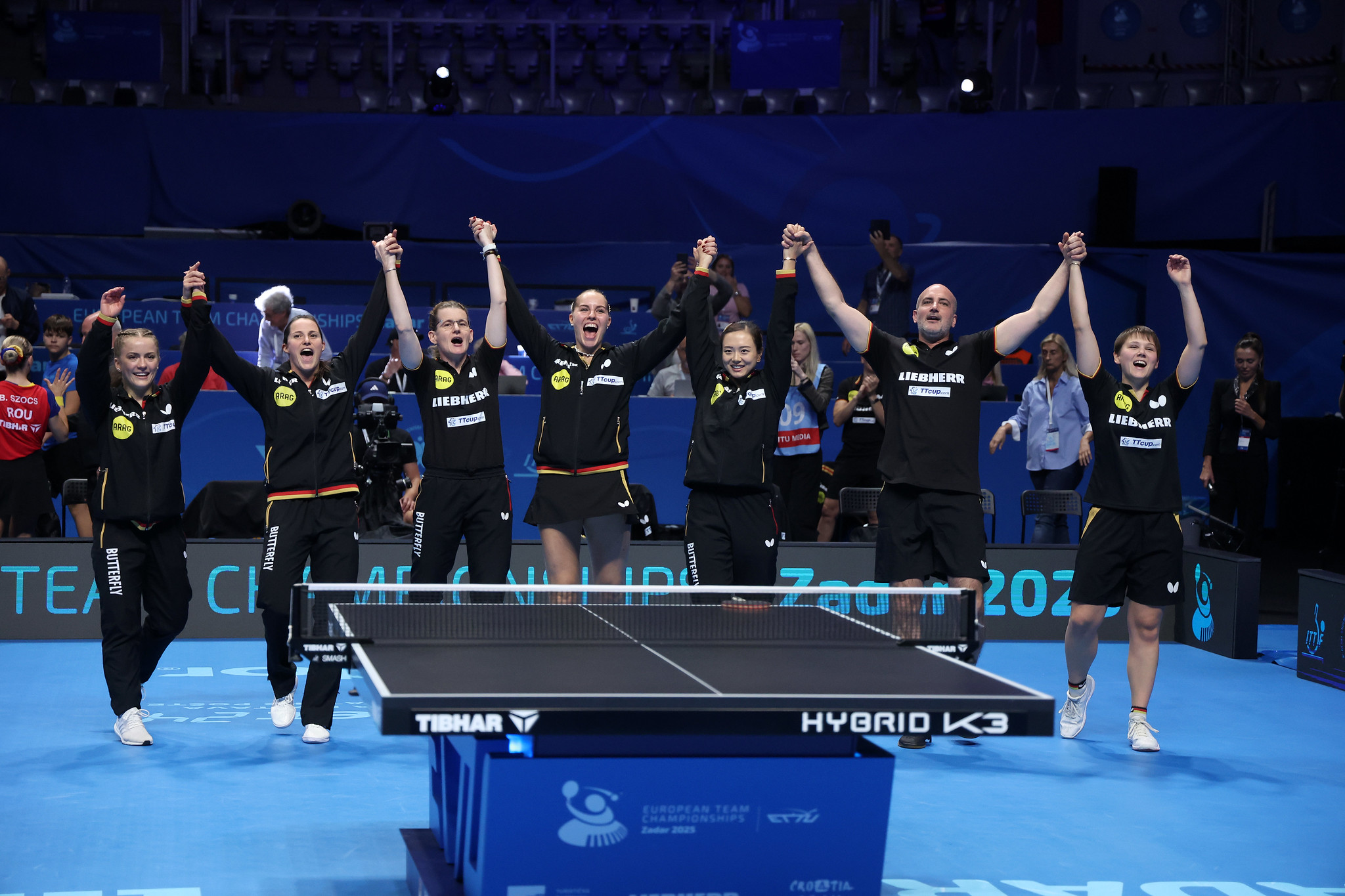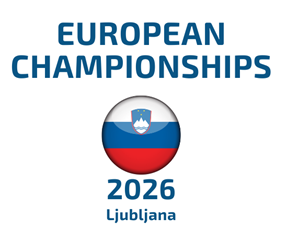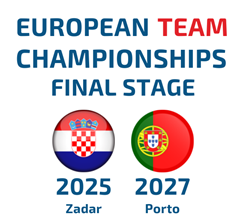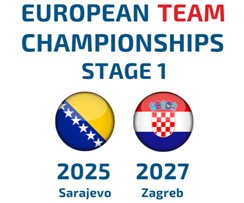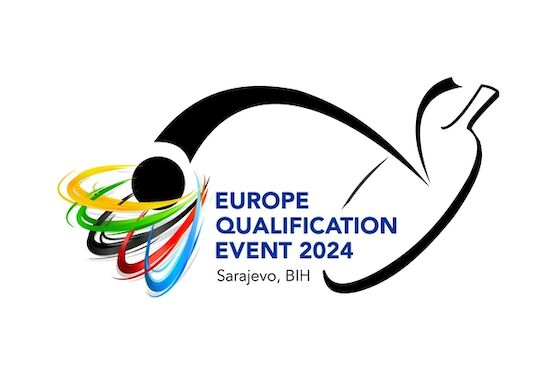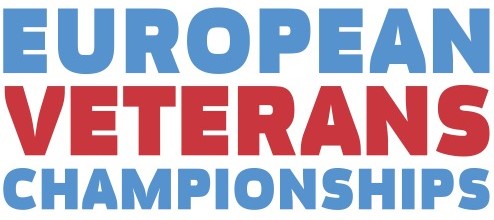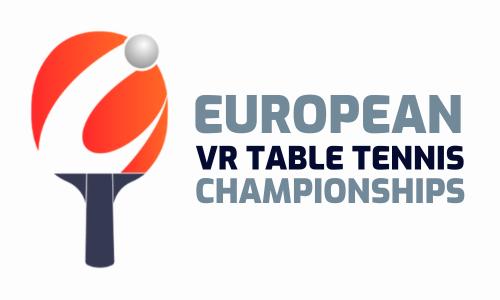Newly crowned European Team Champion is France. In the final of the men’s event at the European Team Championships 2025 in Zadar, the Olympic bronze medallists overcame Romania 3–0 to capture their first European team title in 27 years. After finishing third in Malmö 2023, France went two steps higher on the podium to reclaim continental glory. In a dazzling display of power and precision, Alexis LEBRUN, Félix LEBRUN, and Simon GAUZY defeated Iulian CHIRITA, Eduard IONESCU, and Ovidiu IONESCU in straight matches. Félix LEBRUN summarised the triumph simply: “It was just a perfect match! We enjoyed every moment of this championship, and to win the gold is the perfect ending.” His brother Alexis LEBRUN added: “It’s crazy, European Champion! It’s unbelievable. We have such a great team, and it’s an incredible feeling to share this together. I’m just so happy to be part of this amazing team. We are European Champions, it’s just amazing!” When asked about their toughest opponents, Alexis didn’t hesitate: “Germany, I think. They have a very strong team, and it was a tough match, but we managed it well. I think we played a great tournament overall, everything went perfectly.” The team’s most experienced member, Simon GAUZY, reflected on the historic moment: “After so many years, to be European champions again in a team event feels amazing. I’m just really, really happy right now. Of course, Romania did a great job reaching the final, but definitely, Germany was the toughest team to beat. Still, we played a perfect tournament from beginning to end, we can only be proud.” France’s golden triumph in Zadar marks their fourth European team title, following previous victories in 1984, 1994, and 1998. They have also finished as runners-up twice (1986, 1996) and collected six bronze medals (2002, 2010, 2015, 2017, 2019, 2023). For the first time in history, Romania’s men’s team advanced to the final, surpassing their previous best of three bronze medals (2005, 2007, 2009). Their remarkable run, highlighted by victories over Sweden and Slovenia, showcased the rise of a new generation led by Iulian CHIRITA, Eduard IONESCU, and Ovidiu IONESCU. Germany and Slovenia Share Bronze Germany secured the bronze medal after their narrow semi-final loss to eventual champions France. The team of Benedikt DUDA, Patrick FRANZISKA, Dang QIU, André BERTELSMEIER, and Ricardo WALTHER finished one step lower than their silver result in Malmö 2023. It is only the third time this century that Germany has not reached the final (previously in 2000 and 2005). Since their first European team title in 2007, Germany have been a dominant force, reaching 12 consecutive finals, an unmatched record in the competition’s history. Over the decades, Germany have earned: 9 gold medals – 2007, 2008, 2009, 2010, 2011, 2013, 2017, 2019, 2021; 7 silver medals – 1980, 1990, 2002, 2003, 2014, 2015, 2023; 3 bronze medals – 1962, 1992, 1994. Slovenia joined Germany on the third step of the podium, celebrating their second-ever team medal, after their historic bronze in 2017. Their line-up featured Darko JORGIC, Deni KOZUL, Brin VOVK PETROVSKI, Peter HRIBAR, and Bojan TOKIC, marking another milestone in Slovenian table tennis history. Final – Men’s Team Event France – Romania 3–0
Germany Crowned European Champions for the Tenth Time – Third Consecutive Title
The German women’s team are European champions for the tenth time overall and for the third time in a row since 2021. At the European Team Championships in Zadar, Croatia, Sabine WINTER, Annett KAUFMANN, Nina MITTELHAM, Yuan WAN and Mia GRIESEL defeated their long-time rivals Romania 3–0, successfully defending the title they won two years ago, once again without losing a single individual match throughout the tournament. Bronze medalists were Portugal and the Netherlands. In the opening match, 19-year-old Annett KAUFMANN started with explosive energy, taking the first game 11–4 against Romania’s No. 1 Bernadette SZÖCS. That came as a surprise, as KAUFMANN had never won even a single game in their two previous international encounters, most recently losing 0–4 at last year’s European Championships in Linz. “I didn’t go into the match confident because of our head-to-head record,” KAUFMANN admitted. “But I told myself: I’ve got nothing to lose. Suddenly I was up 9–3 in the first game, and that’s when I felt the confidence, I told myself, this match is mine.” SZÖCS fought back to level the score and took the second game 12–10. KAUFMANN responded brilliantly, going up 8–1 in the third and regaining the lead 11–8. SZÖCS equalised once more, but the young German completely dominated the decider, racing to 5–0 at the change of ends and sealing the win 11–5, a massive first point for Germany. Next up, Sabine WINTER once again displayed her growing confidence and composure. Against 2015 European champion Elizabeta SAMARA, she took the first two games before the Romanian mounted a comeback, reducing the gap and leading 7–4 in the fourth. Then WINTER switched gears, winning seven points in a row to close the match 3–1. The closing match brought a sense of déjà vu from Malmö 2023, as Nina MITTELHAM faced Andreea DRAGOMAN, the same opponent she had edged out in a five-set thriller last time. Once again, the duel was tight. MITTELHAM, who rejoined the team in the knockout rounds after recovering from illness, took the first two games 14–12 and 11–8, dropped the third, and then finished strong to secure the championship 3–1. “When it really matters, when the opponents are stronger, that’s when I start to play better,” said MITTELHAM, visibly relieved after the match. “I’m glad the other two gave me a 2–0 lead; that made it a bit easier. I hadn’t played many matches since my injury break, so every match helps me get back into rhythm. I even joked before the tournament that we should keep our 3–0 streak going, and now we really did it all the way to the title!” She also praised her teammates: “Annett played unbelievably well, she had never beaten Szöcs before. And Sabine was rock solid against Samara, just as I imagined she would be.” On their way to a tenth European title, Germany did not lose a single team or individual match. Their unbeaten run stretches back to 2021, encompassing 17 consecutive team victories, including twelve consecutive straight 3–0 wins. Sabine WINTER: “I’m just super grateful for this experience and for being able to fight with this team. When you win the European Championships, it’s an incredible feeling. “When we were leading 2–0 in matches, I started to believe strongly. I had a lot of confidence in Nina, she always manages tough matches so well. After that, we could be calmer, not relaxed, but confident.” Dominant Record in Europe Germany remains one of the most successful nations in the history of the European Team Championships, boasting ten titles, 1962, 1968, 1996, 1998, 2013, 2014, 2015, 2021, 2023, and 2025. They have finished as runners-up five times (1982, 1994, 2000, 2002, 2017) and taken bronze twice (1986, 2007). With this tenth title, Germany moves ahead of Hungary on the all-time winners’ list, the Hungarians claimed nine golds between the 1960s and 2007. Romania has claimed the title five times (1992, 2002, 2005, 2017, 2019), finished runners-up seven times (1958, 2010, 2011, 2013, 2015, 2021, 2023), and taken eight bronze medals (1960, 1964, 1978, 1980, 1996, 1998, 2003, 2008). Remarkably, since 2011, Romania reached the final in every edition of the Championships except 2014. Portugal and the Netherlands Share Bronze Portugal confirmed their consistency at the European Team Championships by finishing third once again, matching their results from 2021 and 2023, after claiming silver in 2019. The team of Jieni SHAO, Fu YU, Julia LEAL, and Matilde PINTO reached the semi-finals, where their campaign was halted by defending champions Germany. The Netherlands made a triumphant return to the medal rostrum, winning bronze for the first time since 2017. With the experienced duo Britt EERLAND and Jie LI back in the lineup, they led Shuohan MEN and Tanja HELLE to another podium finish. The Netherlands boast a proud record at the European Championships, with four consecutive gold medals (2008–2011), one silver (1992), and two bronzes (1988, 2017). Final – Women’s Team Romania – Germany 0–3 Bernadette SZÖCS – Annett KAUFMANN 2–3 (4–11, 11–9, 8–11, 11–6, 5–11) Elizabeta SAMARA – Sabine WINTER 1–3 (5–11, 8–11, 11–8, 7–11) Andreea DRAGOMAN – Nina MITTELHAM 1–3 (12–14, 8–11, 11–8, 5–11)
